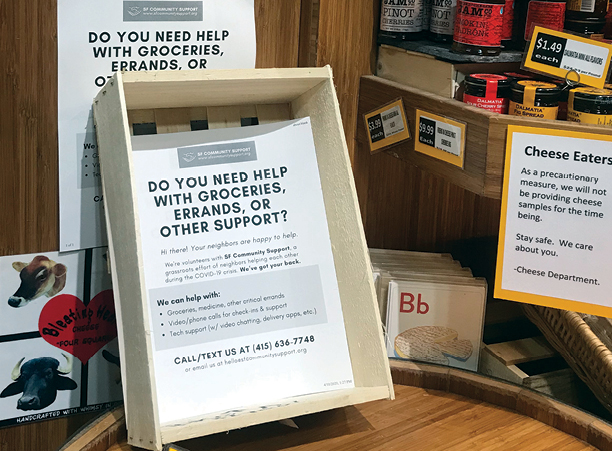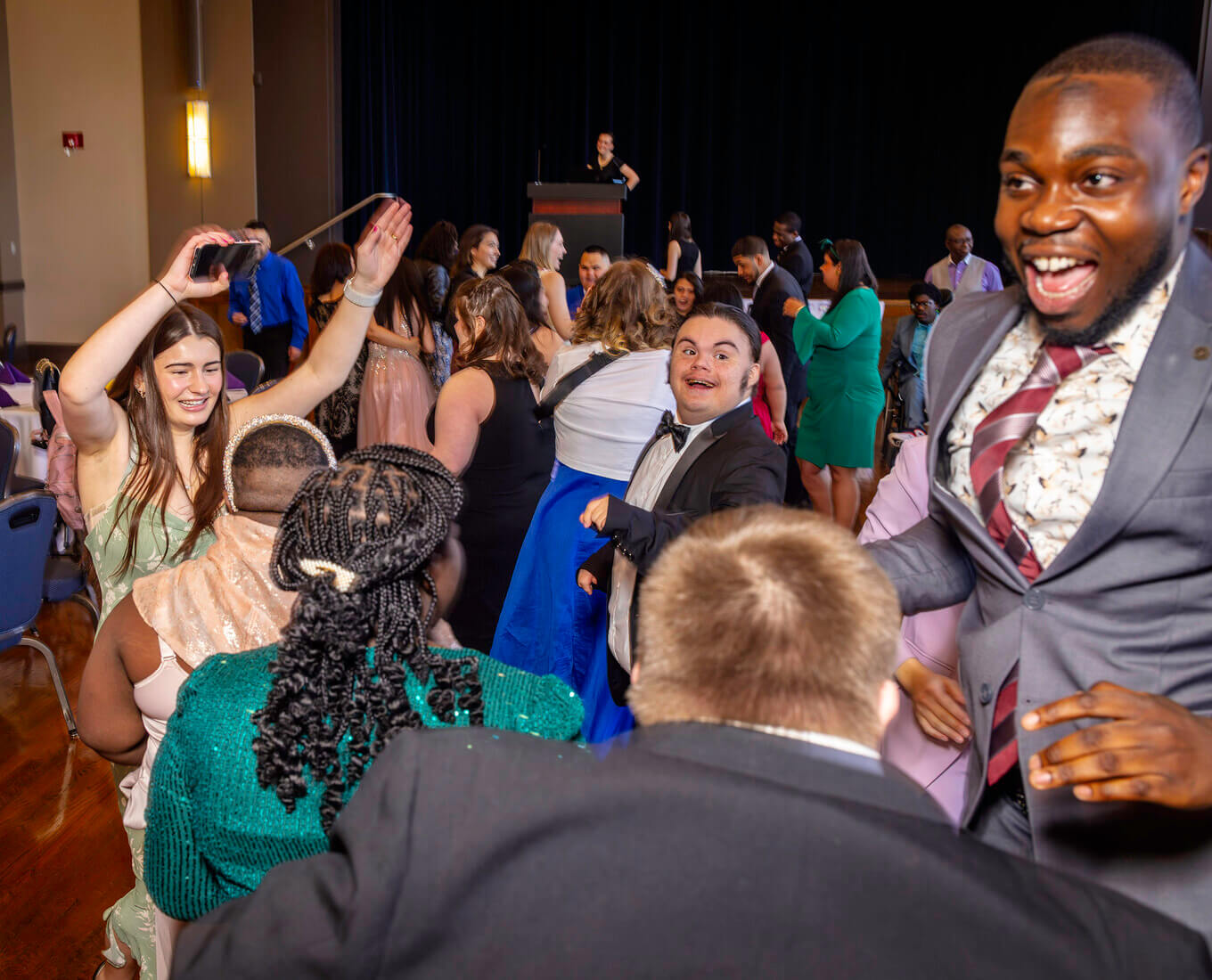
In mid-March, a few days before the shelter-in-place order was announced in San Francisco, Megan Demit '16 was at home scrolling through Twitter when she came across an anecdote that caught her attention.
The writer described being asked to purchase groceries for an older woman who was afraid to enter the store. The tweet prompted Demit to wonder: "If coronavirus becomes a whole thing, what are we going to do?"
The day after Demit saw the tweet, she went on Nextdoor, a website that facilitates connection and the exchange of useful information between neighbors. When she didn't see anything in her neighborhood group about coronavirus, she decided to write a post offering support, which eventually culminated in the creation of the Nextdoor group: Coronavirus Help for Neighbors. She wanted to offer similar support — running errands for those who were afraid or unable to leave their homes due to the pandemic. "By the time Monday hit, when they announced the shelter-in-place, there were probably dozens of [similar] posts on Nextdoor," Demit recalls.
Fast-forward several weeks and what started as a small group on Nextdoor has quickly grown into SF Community Support: a now-citywide network of more than 800 volunteers who assist neighbors with errands such as getting groceries and picking up prescriptions. They also offer video calls and phone calls for those who might feel lonely or need emotional support. The network operates its volunteer database through Google Drive and Airtable, and matches requests submitted by phone or online with a volunteer who lives nearby. A resident of the Mission District, Demit notes her neighborhood in the east-central part of the city has been particularly hard-hit by the virus. "Our zip code is one of the top 5 [for] COVID cases in the city," she says. An SF Community Support flyer advertising its services.
An SF Community Support flyer advertising its services.
Demit, a sociology major at Holy Cross, says it was never her plan to found a mutual aid network, but the outpouring of interest from the generous community sparked a movement. To get the network off the ground, she worked closely with three other city residents she met on Nextdoor. "There were a lot of ideas we prototyped and experimented with, including flyering around different neighborhoods," she says. "We wanted this to be bigger than just the pandemic. We wanted it to be centered around building community and mutual support through a hard time. We are all living here and going through the same thing together and we all have different gifts to give each other."
A key focus for the group was fostering connection between neighbors during a time when many are feeling disconnected. "We could have been very transactional with this. But we liked the idea of getting to know your neighbors a little in the capacity we could during all of this, and supporting [each other] in a way where we're bolstering each other up," Demit says.
True to their intention to keep the effort community-driven and decentralized, Demit and her fellow organizers established "neighborhood pods." "We identified people within the main volunteer network who said they were interested in being pod leads and taking on a little more responsibility. We met with pod leads [about] how to build out and reach the people in their neighborhoods who needed help," Demit says. "We really wanted to empower those people who were interested to do what they thought made sense for their neighborhood; it was inspiring to see different methods work in different neighborhoods."
Community members were eager to step in to support the effort. They worked with Rainbow Grocery, a worker-owned cooperative in the Mission District, to operate volunteer-only hours so SF Community Support volunteers could shop for their neighbors without having to wait in long lines; a Girl Scout troop made masks for the volunteers out of recycled T-shirts; and a group of doctors they met through Nextdoor offered medical expertise to help the group develop safety guidelines for volunteers.
While the network has received accolades for its work, Demit says the focus should lie elsewhere: "I have gotten a lot of praise from my co-workers and friends, but I don't want to be seen as this exceptional person doing something amazing. I just saw an opportunity to facilitate connections between people who were willing to extend generosity to their neighbors and try to create the conditions to enable these connections to happen with my fellow organizers."
Instead, she says the attention should be on supporting those who need it most. "A lot of times the people who are the most deserving and in need of support are not the most warm and fuzzy people who are going to make you feel great for offering them assistance," she notes. "But you need to derive some sort of meaning out of it that's deeper than just feeling good about it."
Now a graduate student at the Maryland Institute College of Art, Demit decided to wind down her work with SF Community Support due to the increased workload of academics on top of her job at Save the Redwoods League, an environmental conservation organization. Although it was difficult to step away from the network she helped build, Demit says she is confident the effort is in good hands: "It's a testament to how strong the network is to know that this social infrastructure will stand even when team members need to leave."
Written by Mary Cunningham '17 for the Fall 2020 issue of Holy Cross Magazine.
About Holy Cross Magazine
Holy Cross Magazine (HCM) is the quarterly alumni publication of the College of the Holy Cross. The award-winning publication is mailed to alumni and friends of the College and includes intriguing profiles, make-you-think features, alumni news, exclusive photos and more. Visit magazine.holycross.edu/about to contact HCM, submit alumni class notes, milestones, or letters to the editor.
Alumna Creates Volunteer Network to Aid Vulnerable Neighbors During the Pandemic
Inspired by social media, Megan Demit '16 started a neighborhood group that quickly expanded throughout San Francisco


